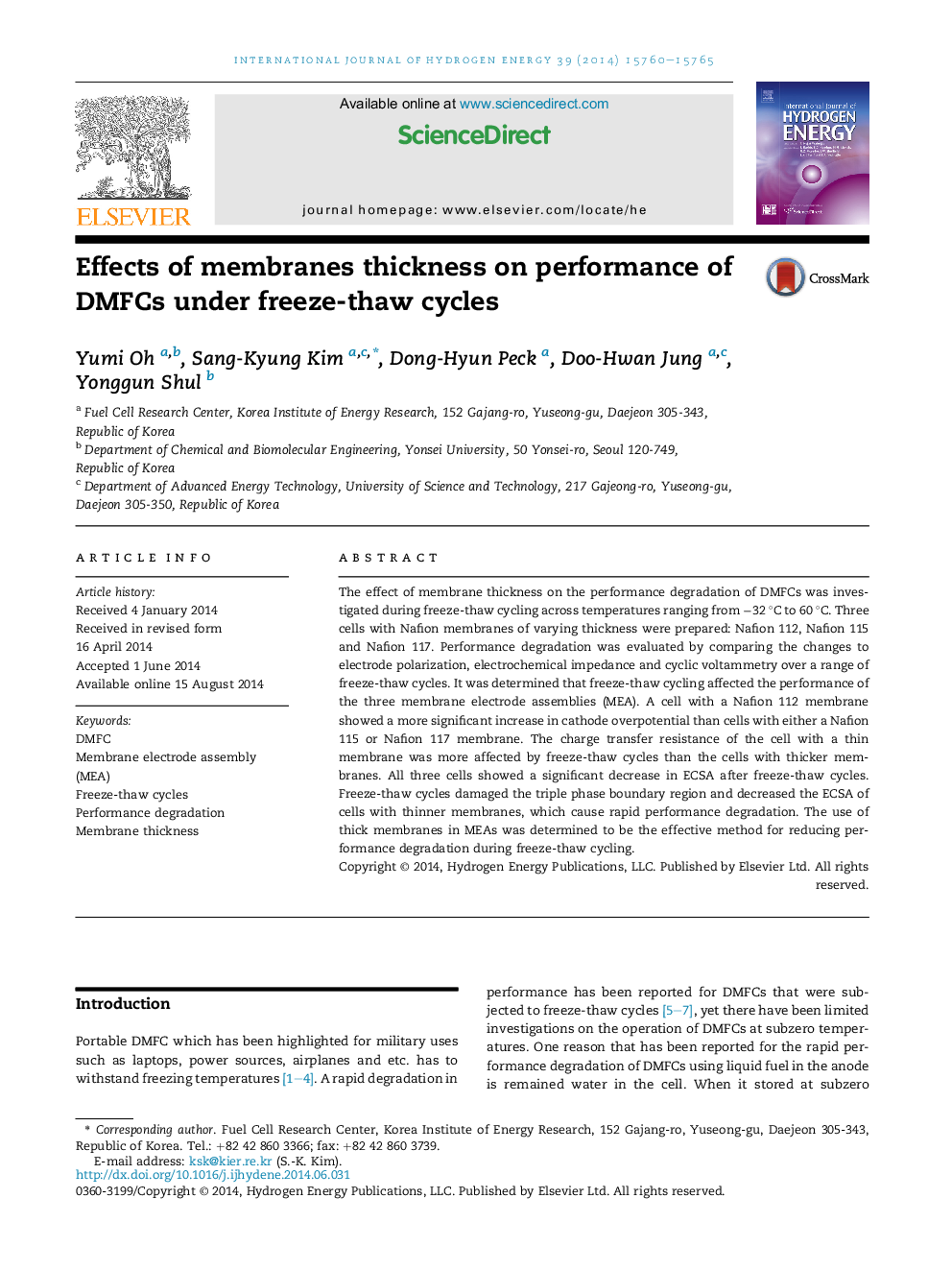| Article ID | Journal | Published Year | Pages | File Type |
|---|---|---|---|---|
| 1272415 | International Journal of Hydrogen Energy | 2014 | 6 Pages |
•Due to the increase of charge transfer resistance and cathode overpotential, rapid performance degradation of DMFC by freeze-thaw cycling.•A severe degradation in performance was observed for cells with thin membranes.•Using thick membranes for MEAs is the best method to reduce performance degradation.
The effect of membrane thickness on the performance degradation of DMFCs was investigated during freeze-thaw cycling across temperatures ranging from −32 °C to 60 °C. Three cells with Nafion membranes of varying thickness were prepared: Nafion 112, Nafion 115 and Nafion 117. Performance degradation was evaluated by comparing the changes to electrode polarization, electrochemical impedance and cyclic voltammetry over a range of freeze-thaw cycles. It was determined that freeze-thaw cycling affected the performance of the three membrane electrode assemblies (MEA). A cell with a Nafion 112 membrane showed a more significant increase in cathode overpotential than cells with either a Nafion 115 or Nafion 117 membrane. The charge transfer resistance of the cell with a thin membrane was more affected by freeze-thaw cycles than the cells with thicker membranes. All three cells showed a significant decrease in ECSA after freeze-thaw cycles. Freeze-thaw cycles damaged the triple phase boundary region and decreased the ECSA of cells with thinner membranes, which cause rapid performance degradation. The use of thick membranes in MEAs was determined to be the effective method for reducing performance degradation during freeze-thaw cycling.
